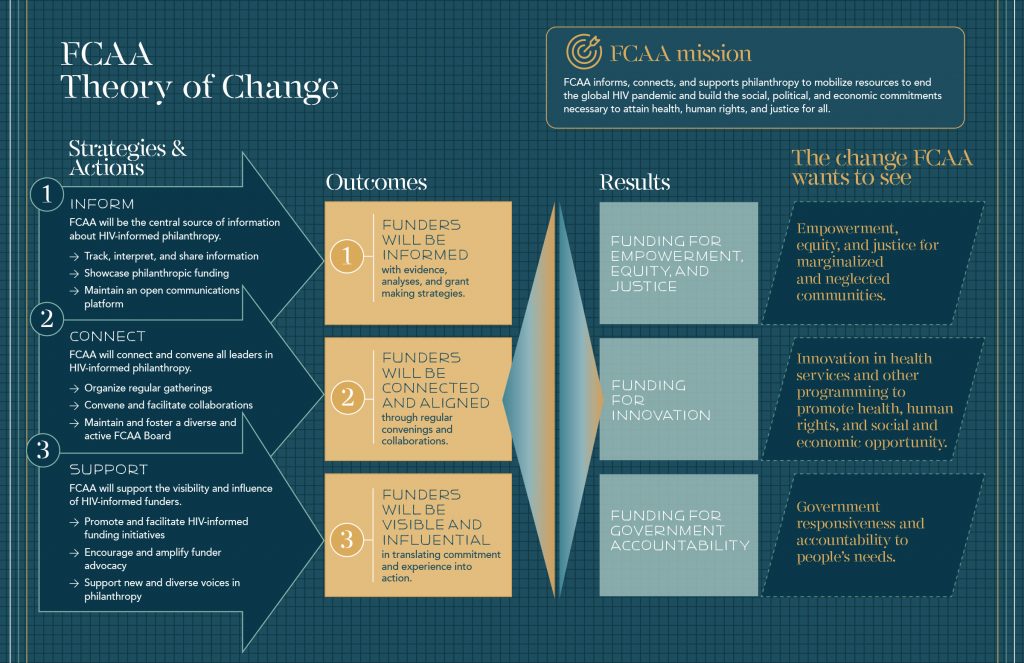HIV-Informed Grantmaking
The earliest recorded HIV-focused philanthropy — beginning with only five private foundation grants in the United States in 1983, adding up to $216,000 — funded pioneering sexual health and harm reduction programs, innovative peer support and home-based care services, and policy work and advocacy that mobilized unprecedented global campaigns against HIV and other leading diseases. That work in turn inspired increases in HIV-related philanthropy, such that by 2018, a total of 693 grant makers in 14 countries invested $651 million in grants to HIV-related efforts.
Now, in the context of the global COVID-19 pandemic, the experience of grantmakers in the HIV response is essential. The world needs philanthropic funders that understand emergency responses to new epidemics and sustained efforts to bring epidemics to an end. The world needs philanthropic funders that fund across intersecting issues of health, rights, community empowerment, and government funding, accountability, and action. The world needs philanthropic funders that follow evidence, including both ‘standard’ scientific evidence and community-generated evidence, and are willing to challenge stereotypes, stigma, and discrimination.
The funders that lead and participate in FCAA have extensive experience, perspective, and commitment in responding to epidemics and their consequences for marginalized populations. This is where we come from; it’s what informs us, connects us, and motivates our energy and activism — and it remains a central aim for many, if not most, FCAA members.
We don’t yet know how the current COVID-19 pandemic will change our world or our work. We do know that HIV-informed philanthropy is more important than ever.
Learn about the many other funder philanthropy-serving organizations FCAA works with to inform, connect, and support philanthropy on the issues that intersect with HIV.
